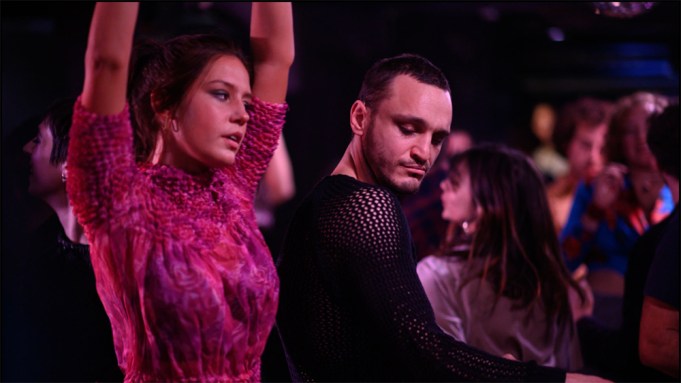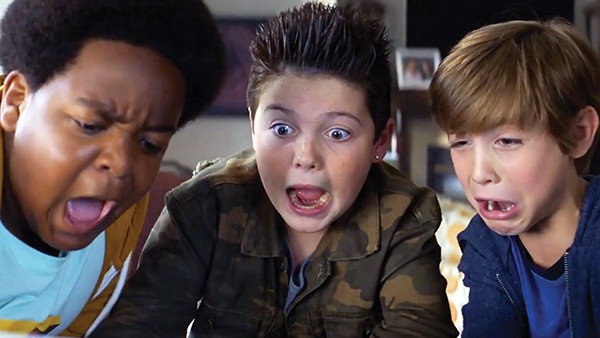It’s a crowded weekend for new releases, so let’s get right to it. Blue Beetle is almost as old as Batman — so old, he once starred in a radio serial — but he never took off like the Bats. His current incarnation is Jamie Reyes, a Mexican-American undergrad who finds an alien robot scarab, and, well, just watch.
Memphis expat auteur Ira Sachs’ latest is his most controversial work to date. Passages is a film about a love triangle between a charismatic rogue film director (Franz Rogowski), his longsuffering printmaker husband (Ben Whishaw) and a meek school teacher (Adèle Exarchopoulos) that earned an NC-17 rating from the MPA for reasons that Ira Sachs explains in this interview I did with his for this week’s Memphis Flyer. This is one of the year’s best films so far, so don’t sleep on it.
Sure, dogs are great. But wouldn’t they be greater if they could talk? Sure they would. But let me up the ante for you: What if dogs could talk, and they talked dirty?
Uh huh. Now I got your attention. Will Ferrell, Will Forte, Jamie Foxx (that’s Academy Award-winning actor Jamie Foxx to you), and Randall Park are dirty, dirty dogs that talk in Strays. Since this is the Flyer, we’re running the red band trailer, so put on your headphones unless you want your boss to overhear and fire you.
Wesley Snipes is a national treasure who doesn’t get enough work because most Hollywood producers are weak and fearful. That’s why he’s producing his own joint with fellow under-appreciated talent Tiffany Haddish. Back on the Strip brings together a crackerjack cast, including JB Smoove and Bill Bellamy, to tell the story of Merlin (Spence Moore II), a wannabe magician who discovers his real talent is as a male stripper. Snipes co-stars as “Mr. Big.”
In a shocking twist, Tiffany Haddish’s film is opening against a film co-starring Tiffany Haddish. This one is Landscape With Invisible Hand, based on the science fiction novel by M.T. Anderson. When aliens come to earth, things go on pretty much as normal. A new social media niche opens up because the aliens don’t understand human emotion. They will pay people who are in love to livestream their lives, which are apparently very entertaining to the loveless blobs. But what happens when two livestreamers fall out of love? Litigation, apparently.


